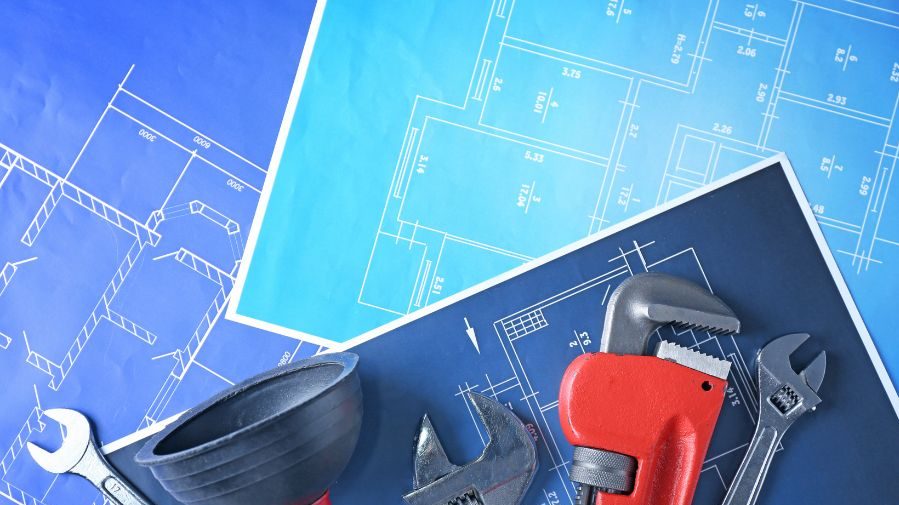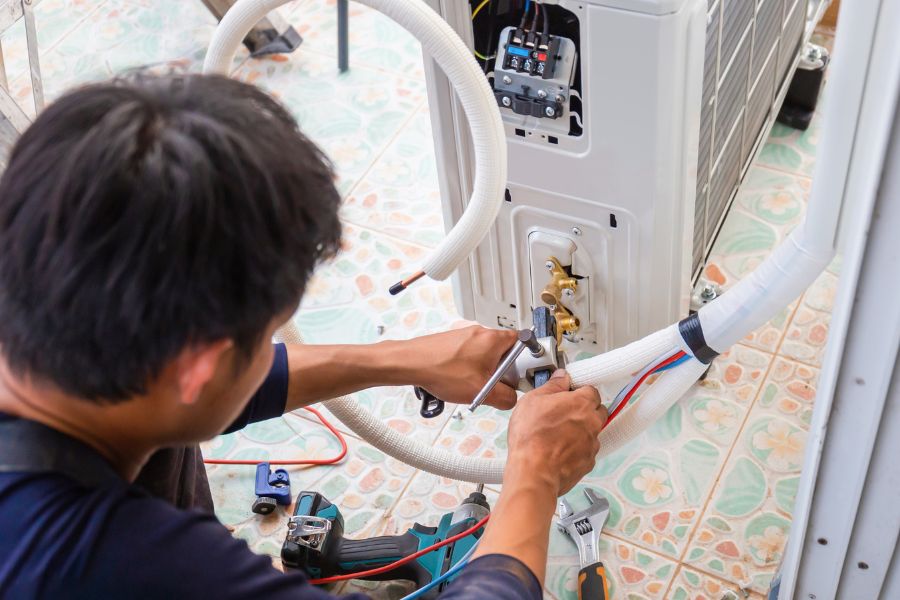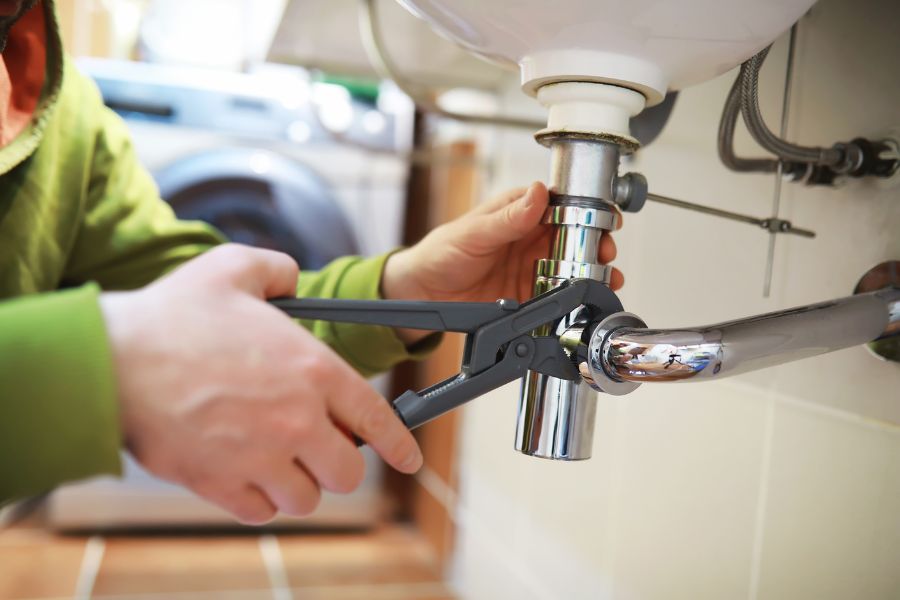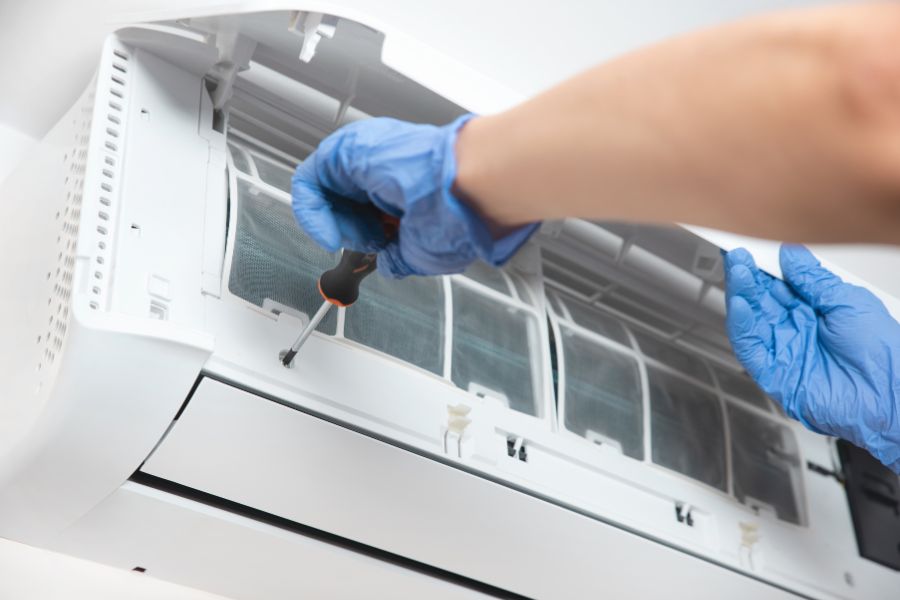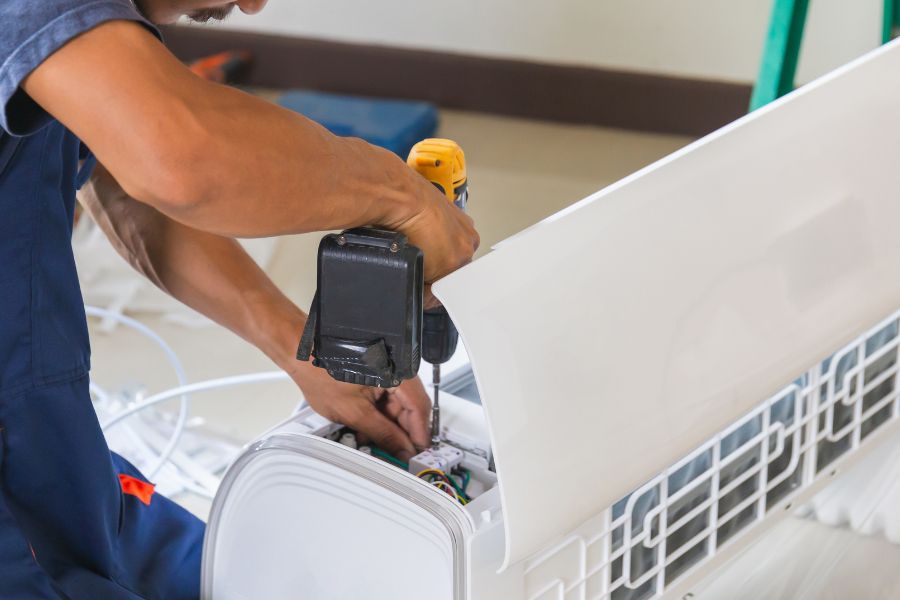HVAC systems are essential equipment in our homes and commercial places. They keep us comfortable all year round by providing warmth during winter and cooling during summer. However, just like any other machine, HVAC systems degrade over time. The big question is: how do you evaluate if your system needs a repair or replacement?
Reliable HVAC Repair Services in Northern Virginia
https://www.jhoodservices.com/
The first step in evaluating the necessity for repair or replacement of your HVAC system is determining its age. Typically, an HVAC system lasts between 15 to 20 years. If your system is nearing or has exceeded this age range and is frequently breaking down, it might be time to consider replacing it.
Some other factors to consider when evaluating the age of your system include:
- Efficiency: Older models tend to be less efficient compared to newer ones. If you’re noticing a steep increase in your energy bills, it might be due to an old and inefficient system.
- Safety: Older systems may pose safety risks such as carbon monoxide leaks or electrical issues.
AC Repair Frequency in Northern Virginia
Another indicator of whether your HVAC needs repair or replacement is the frequency of repairs. If you are constantly calling for repairs, then it may be more cost-effective in the long term to replace the entire unit.
Here’s an overview:
- Minor/major repairs: Minor repairs such as changing filters or fixing loose parts are normal. However, if you’re dealing with major issues like replacing motors or compressors frequently, then it’s advisable to replace the unit.
- Cost of repair vs replacement: Consider if repairing your current unit will cost more than half the price of a new one.
Air Conditioner Repair Solutions in Northern Virginia for Uneven Temperatures and Comfort Levels
Your HVAC’s primary role is maintaining comfortable temperatures throughout your premises. However, if some rooms are too hot while others too cold despite having a running HVAC system, it might be a sign that your system needs repair or replacement. Such discrepancies can result from ductwork problems, leaks, or a failing system.
Addressing AC Repairs in Northern Virginia
Sometimes, the need for HVAC repair or replacement is prompted by changes in your living conditions. For instance, if you recently renovated your home or changed the layout of your office space, you may need to upgrade your HVAC system to meet the altered heating and cooling demands.
Ultimately, deciding whether to repair or replace an HVAC system requires careful consideration of several factors. It’s advised to consult with a professional HVAC technician who can provide expert advice based on their evaluation of the system’s condition and performance.
An HVAC system is an integral part of any home or office set-up. Ensuring its optimal functionality is key to maintaining a comfortable living environment. However, like all machines, HVAC systems can also break down, requiring repair or replacement. With some knowledge, it’s possible for homeowners and facility managers to identify signs that point to potential malfunction. This early identification can save time, money, and avoid discomfort by addressing the problem before it escalates.
Here are some distinct signs to look out for that indicate your HVAC system may need repair or replacement:
- Increased Energy Bills: If you notice a sudden spike in your energy bills without any significant change in usage habits, it could indicate inefficiency in your HVAC system.
- Inconsistent Temperature Across Rooms: An effective HVAC system should distribute heat or cool air equally across all rooms. If you notice varying temperatures from one room to another, it may signal an issue with the ductwork or the overall system.
- Strange Noises: While some noise from your HVAC system is normal during operation, persistent loud noises like grinding, squealing, or banging can be a sign of significant problems needing immediate attention.
- Frequent Repairs: If you find yourself constantly calling for repairs and replacements of parts within your HVAC system, this could be a sign that the entire unit may need replacing.
- Old Age: The lifespan of most HVAC systems ranges from 10-15 years depending on usage and maintenance habits. If your system is nearing or has surpassed this age range while showing other signs of dysfunction, it might be more cost-effective to replace than repair.
- Poor Air Quality: If you’re experiencing issues like dust accumulation and poor humidity control leading to mold growth despite regular cleaning attempts; these could indicate problems with your HVAC’s filtration system.
It’s important to remember that while some of these signs might suggest a simple repair may fix the problem, others may indicate a more serious concern warranting replacement of your HVAC system. Therefore, having a professional HVAC technician evaluate the system is critical for making the right decision. They can provide expert advice and potentially troubleshoot issues before they turn into major problems.
Maintenance is another essential factor to consider. Regularly scheduled maintenance checks can help identify minor issues before they become substantial problems, prolonging the life of your HVAC system. It’s recommended to have your HVAC system checked at least once a year, ideally before the start of a new season.
By actively looking out for these signs and maintaining regular checks, you can ensure that your HVAC system functions efficiently and effectively for as long as possible.
One of the most common indications that your Heating, Ventilation and Air Conditioning (HVAC) system may require repair or replacement is when it begins to produce strange sounds. These unusual sounds can mean several things, ranging from minor issues that can be quickly fixed to serious problems necessitating extensive repairs or even a complete system replacement. It’s crucial to understand what these sounds might indicate so that you can make an informed decision.
Squealing
Squealing noises often indicate a problem with the belts or motor bearing of your HVAC system. A high-pitched squeal could mean that the belt has become displaced, while a low-pitched one might signify a faulty motor bearing. In both cases, it’s recommended to get professional help as soon as possible to prevent further damage.
Rattling
A rattling sound from your HVAC system generally suggests loose parts such as screws, bolts or other hardware. If not addressed promptly, these loose parts can cause extensive damage to your unit. Hence, if you notice this sound, contact a technician immediately for inspection and repair.
Clanking
If you hear clanking sounds coming from your HVAC system, it could be pointing towards an issue with the blower assembly or motor. This indicates that some parts are unbalanced and moving against each other during operation which can lead to severe damage over time.
Buzzing
Buzzing noises can stem from various issues such as loose parts, debris in either the indoor or outdoor unit, out-of-balance fan blades or even refrigerant leaks. If you hear buzzing when your system operates, it’s best to call in a professional for further examination.
Hissing
A hissing sound usually signifies air escaping from somewhere within the system – this could be due to leaky ducts or a failing expansion valve. Immediate attention is required in such cases to prevent further deterioration of your HVAC system’s performance.
Clicking
Clicking sounds when the HVAC system cycles on and off are typical and nothing to worry about. However, if these noises persist even when the unit is not cycling, it could indicate a defective relay or a failing thermostat.
The following table provides an overview of the potential problems that various sounds may be indicating:
| Sound | Potential Problem |
| Squealing | Displaced belt or faulty motor bearing |
| Rattling | Loose parts (screws, bolts, etc.) |
| Clanking | Issue with blower assembly or motor |
| Buzzing | Loose parts, debris, off-balance fan blades, refrigerant leaks |
| Hissing | Leaky ducts or failing expansion valve |
| Clicking | Defective relay or failing thermostat |
Understanding and being able to decode the unusual sounds from your HVAC system plays a significant role in maintaining the overall health and longevity of your heating and cooling systems. As soon as you notice any noises that seem out of place, ensure to consult a professional technician immediately. Prompt action can save you money in the long run by preventing minor issues from escalating into major ones.
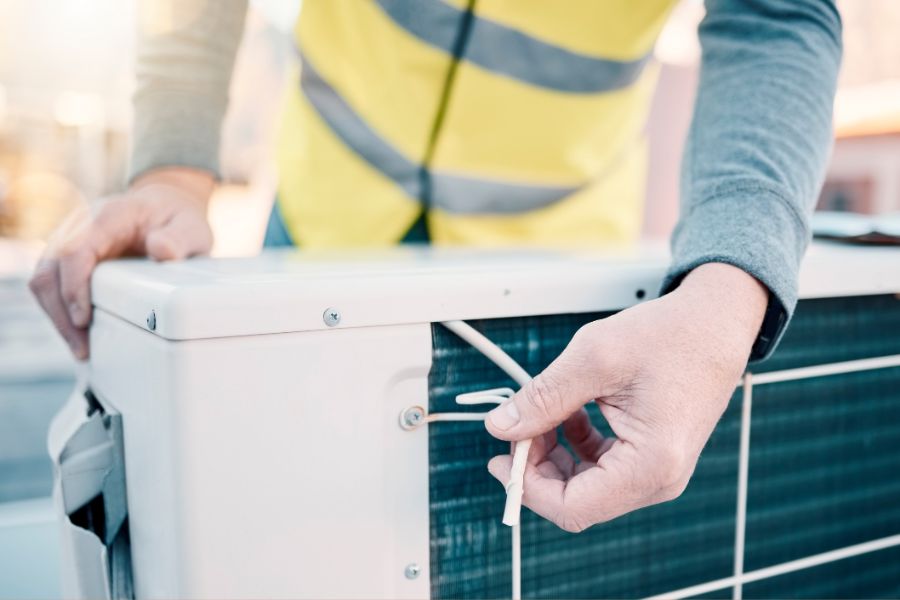
Proper air circulation is absolutely critical for the efficient functioning of your air conditioning system. If you notice that there’s a diminished airflow, or if some rooms in your house are getting cooled while others aren’t, it’s likely that there is an issue with your AC that requires attention. Let us inspect the various reasons why you could be facing air circulation issues and the potential solutions.
Exploring Air Condition Repair Solutions in Northern Virginia
There can be several causes behind air circulation issues in your AC system. They can range from simple to complex problems. Here are some common ones:
- Dirty or clogged filters: A common reason for airflow restrictions is a dirty or clogged filter. If not cleaned or replaced regularly, dust and dirt accumulate on the filters, impeding the smooth flow of air.
- Faulty fans: The fan is responsible for moving the cooled air throughout your home. If it’s not working properly, it can cause uneven cooling.
- Obstructed condenser unit: The outside unit of your AC system, known as the condenser unit, needs to be free of obstructions to work correctly. Any blockages can limit its performance and impact overall cooling.
- Leaky ducts: Over time, ducts can develop leaks due to wear and tear which let cool air escape before reaching its intended destination.
Finding the Best AC Companies in Northern Virginia
If you suspect you have an issue with your AC’s circulation, here are some steps you can take:
- Examine Filters: Check if they’re dirty or clogged and replace them if necessary.
- Inspect Fans: Make sure they’re running properly.
- Check Condenser Unit: Ensure there’s no debris obstructing it.
- Audit Your Ductwork: Look out for any leaks or blockages.
If these steps don’t resolve the issue, it’s advisable to call in a professional. HVAC professionals have the expertise and tools needed to accurately diagnose and efficiently fix any AC issues you may be experiencing.
How Regular Maintenance Helps
Routine maintenance plays a crucial role in preventing air circulation issues. It includes activities like cleaning or replacing filters, inspecting fans for signs of wear, checking the condenser unit for obstructions, and sealing any leaks in the ductwork.
Regular maintenance not only ensures optimal air circulation but also extends the lifespan of your AC system, saves energy by improving efficiency, and helps avoid costly repairs or replacements down the line.
In summary, if you encounter issues with air circulation in your AC system, it’s essential to diagnose and address them promptly. While some problems can be resolved by simple checks and fixes at home, others may need professional intervention. And as always, regular maintenance is key to keeping air circulation problems at bay.
Humidity issues can significantly impact the performance of an HVAC system. High humidity levels can make your living or working spaces uncomfortable, induce mold growth, and even lead to structural damage over time. On the other hand, low humidity can cause dry skin, throat infections, and allow viruses to spread easily. Besides these health implications, both high and low humidity levels can negatively affect the efficiency and lifespan of your HVAC system.
High Humidity Issues
High humidity means there is too much moisture in the air, which can occur during warm seasons. An HVAC system functions to remove moisture from the air to achieve a balanced indoor environment. However, when it’s overwhelmed with too much moisture, it has to work harder to maintain a comfortable temperature and might not cool your space efficiently.
High humidity impacts your HVAC system’s performance in several ways:
- Increased Energy Consumption: The excess moisture makes your AC work harderleading to increased energy consumption.
- More Wear and Tear: With increased workload comes more wear and tear on the system’s components.
- Reduced Comfort: Even with an AC running continuously, you may still feel warm due to high humidity.
Low Humidity Issues
Low humidity often occurs during cold seasons when the heating unit is operating continuously. It reduces indoor air quality by making the environment dry causing physical discomfort like dry skin or sinus problems.
Low humidity also affects your HVAC system:
- Increased Energy Usage: Since dry air feels colder than humid air at the same temperature, you might turn up your thermostat causing an increase in energy usage.
- Damage to Furnishings: Low indoor humidity could also lead to damage of wood furnishings as they lose moisture into the dry air.
To manage these issues related with both high and low levels of humidity, consider some options like:
- Use a Dehumidifier: This device removes excess moisture from the air, reducing the load on your HVAC system during humid conditions.
- Install a Humidifier: In dry conditions, a humidifier adds moisture to the air to prevent it from becoming too dry.
- Regular Maintenance: Regular maintenance of your HVAC system ensures it operates at optimal efficiency.
Remember that maintaining the right humidity level is essential not only for your comfort but also for the longevity and efficiency of your HVAC system. It’s advisable to hire a professional if you are experiencing persistent humidity issues or if your HVAC system doesn’t seem to be performing optimally. They have the knowledge and experience to diagnose and fix any issue promptly and effectively.
- Evaluating the Necessity of Repair or Replacement for Your Quality Heating & Cooling HVAC System
- Comprehensive Guide to Air Conditioning Repair in Northern Virginia
- Effective Strategies for Water and Energy Conservation by Plumbers in Northern Virginia
- Finding Quality Plumbers in Northern Virginia: An Essential Guide
- Choosing the Right Plumbing Services in Northern Virginia for Your Residential Needs
